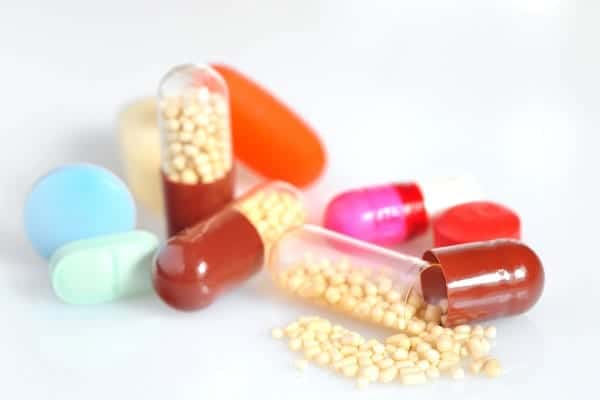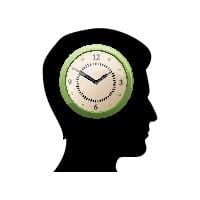“Understanding the difference between healthy striving and perfectionism is critical to laying down the shield and picking up your life. Research shows that perfectionism hampers success. In fact, it’s often the path to depression, anxiety, addiction, and life paralysis.” ~Brené Brown, The Gifts of Imperfection: Let Go of Who You Think You’re Supposed to Be and Embrace Who You Are All my life, I’ve been an overachiever – excellent grades in school, huge responsibility at work, and always being there to lend a helping hand to my family and friends. It wasn’t just that I enjoyed the recognition and attention – it was expected of me. When I started working on my Master’s Degree so I could advance in my career, I was sure I would do well. But I wasn’t just a lowly undergrad anymore. Now, I was juggling a career, a family, social responsibilities, my normal volunteer work, and schoolwork that was unexpectedly difficult. So, I did what I’ve always done – I worked harder. But for the first time, hard work just wasn’t enough. Every time I tried to carve out more time to study or work on an assignment, some other areas of my life suffered and I let someone down.
Like Other College Students, I Felt I Needed an Edge
Spend any time around a college campus, and you’ll see entire groups of students who seem to live at the library – they are always studying. It didn’t take me long to learn that they had a not-so-secret advantage. As thousands of American students, they were using the Adderall to help them. Although it is a drug that is typically prescribed for people with ADHD, college students have discovered that the diversion of Adderall has unexpected “benefits”– increased awareness and the ability to concentrate better and study longer. How prevalent is Adderall abuse? Numerous sources report that up to a third of college students admit to taking a prescription medication WITHOUT a prescription within the past year. Nearly 80% of those who had done so reported that Adderall was the drug they took. Interestingly, one survey was among law students, who had to know what they were doing was both illegal and against their school’s zero-tolerance policy. But in the high-stakes, cutthroat legal field, the pressure to perform can be overwhelming. It’s an “arms race of accomplishment”. I can relate to that feeling. 
Faking Symptoms to Get the Adderall I Needed
Here’s the thing – Adderall abuse on campus is an open secret. Everybody knows somebody who uses Adderall. It’s actually easier to get than pot. Best of all, I found out that it is incredibly simple to get a legitimate, legal Adderall prescription, just by faking the symptoms of ADHD. I was even told by the campus “grapevine” which doctors were the most sympathetic and willing to write liberal prescriptions. According to a report in the University of Southern California Science Review, 95% of college Adderall abusers were able to obtain the drug by faking symptoms. In adults, there is no test for ADHD – the doctor just had to take my word for it.
My Edge Took Me to the Edge of Addiction
At first, Adderall seemed to be exactly what I needed. I had more energy and focus, studying between easier, and my grades started to pull up. I’ve always been very results-oriented. Because it helped me so much with my academics, I figured “what the heck” and experimented with improving my work performance, too. And every time I would pop an “Addie”, I knew it was going to be a productive day on the job. But the cracks started showing – I started having problems that no one really talked about. For one thing, I couldn’t sleep. Adderall is a stimulant – some people call it crystal meth in pill form. There were times when I literally went to work the next day without having slept at all. So, I had to get another prescription of Ambien so I could sleep. It was the only way that I could “come down”. The worst consequence of using Adderall was my skyrocketing anxiety. Because now I was “performing” at such a high level, the pressure was even greater. I was set up for failure because I had so much to lose. Every moment of every day felt like my “fight-or-flight” response was in overdrive. I was even starting to get paranoid. Every time something didn’t go my way, I assumed that someone was out to get me in some way – my coworkers, my boss, my professors. I couldn’t go on like that, so I got ANOTHER prescription, an anti-anxiety medication. And that became my daily roller coaster – Adderall to focus, a tranquilizer to calm down, and a sleeping medication so I could get some rest. And even that was only a temporary Band-Aid because my tolerance for the Adderall had grown. When it was first prescribed, I was given 20 mg doses, but now, my regular prescription was up to 45 mg – more than double. And when I had a big assignment at school or project at work, I would take even more. Even I was starting to see the problem – but I couldn’t quit. Every time I tried to quit or cut back, I would feel HORRIBLE – terrible anxiety, explosive irritability, black depression, and a complete inability to concentrate or focus – the entire reason I started taking Adderall in the first place. And the only thing that would make me feel better was another pill. All the while, my mental state, and my desperation kept getting worse. It wasn’t until my wife found me sitting in the dark, hugging myself, and talking about suicide that we decided that something had to change 
Stepping Away from the Edge – Getting Help for My Adderall Addiction
Our first phone call was to a local inpatient Adderall rehab program. After I was evaluated by a specialist, I took a leave of absence from both school and work. Both had wellness programs in place that allowed me to take time to focus on my own health. After completing drug detoxification, I checked into a 30-day program where I learned all about how and why I became addicted to Adderall, and what I was going to have to do moving forward. When I “graduated”, I followed the aftercare recommendations of my therapists. Since then, I have learned to slow down and not try to overburden myself with too many expectations – especially other people’s. I am still a person who is driven to succeed, but as long as I don’t put unrealistic, inhuman pressure on my all-too-human self, it’s easier to avoid the desire for chemical enhancement.
